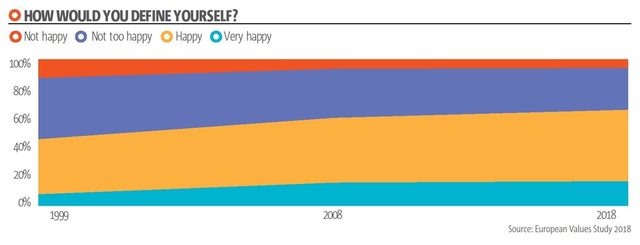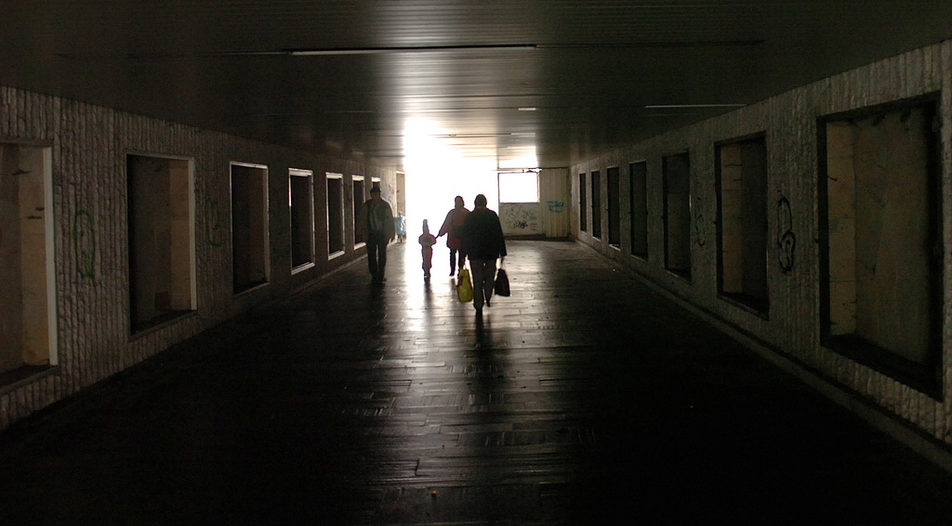In Bulgaria, there is a tendency to refer to the self-perception of Bulgarians in dark tonality. As the cliché goes, the Bulgarians are the poorest, sickest, unhappiest, saddest, etc. This sort of talk corresponds to the age-old Bulgarian inclination for complaining and self-despair. However, it also corresponds to the far newer, and well assimilated existential belief, that in our day the victim's position has a high chance of being advantageous morally, socially, and in terms of media exposure. To present oneself as a victim of injustice and live with the conviction of being such victim brings the rewards of not just self-conciliation and clean consciousness, but also very specific cultural and economic benefits.
The results from the European values study do not offer a confirmation of the exceedingly pessimistic self-evaluations concerning the happiness of contemporary Bulgarians. In comparison to the survey conducted ten years ago, the proportion of people who give a positive assessment has noticeably grown, while that of people who give a negative evaluation has dropped. The number of those who rate their lives as rather happy, is in all sections decidedly larger than that of those who assess their own lives negatively.
Several entirely natural correlations deserve some attention as well. Young people give a more positive evaluation of their lives than the old - since time immemorial, the former have more hope, and the latter more fears and concerns. The better educated feel happier than people who are less educated. The life of an educated person is richer in opportunities. People with children perceive themselves as happier than those without - children bring purpose and happiness to life.

The question about happiness in the European survey is: "On the overall, would you say you are very happy, quite happy, not very happy, not at all happy?" What is this question about? It is about the feeling of happiness, not about some objectively measurable quantity. The subject of this research is the self-evaluation of the way people feel. Meanwhile, the question does not imply a valuation of individual existential events and experiences, but a general feeling about one's own life.
In conclusion, the challenges of life in contemporary Bulgaria are not negligible, but they are not unsurmountable either. Most Bulgarians today have the strength and courage to meet them successfully, and have a purposeful and fulfilling life.
* Prof. Hristo P. Todorov teaches philosophy at New Bulgarian University
In Bulgaria, there is a tendency to refer to the self-perception of Bulgarians in dark tonality. As the cliché goes, the Bulgarians are the poorest, sickest, unhappiest, saddest, etc. This sort of talk corresponds to the age-old Bulgarian inclination for complaining and self-despair. However, it also corresponds to the far newer, and well assimilated existential belief, that in our day the victim's position has a high chance of being advantageous morally, socially, and in terms of media exposure. To present oneself as a victim of injustice and live with the conviction of being such victim brings the rewards of not just self-conciliation and clean consciousness, but also very specific cultural and economic benefits.
The results from the European values study do not offer a confirmation of the exceedingly pessimistic self-evaluations concerning the happiness of contemporary Bulgarians. In comparison to the survey conducted ten years ago, the proportion of people who give a positive assessment has noticeably grown, while that of people who give a negative evaluation has dropped. The number of those who rate their lives as rather happy, is in all sections decidedly larger than that of those who assess their own lives negatively.












